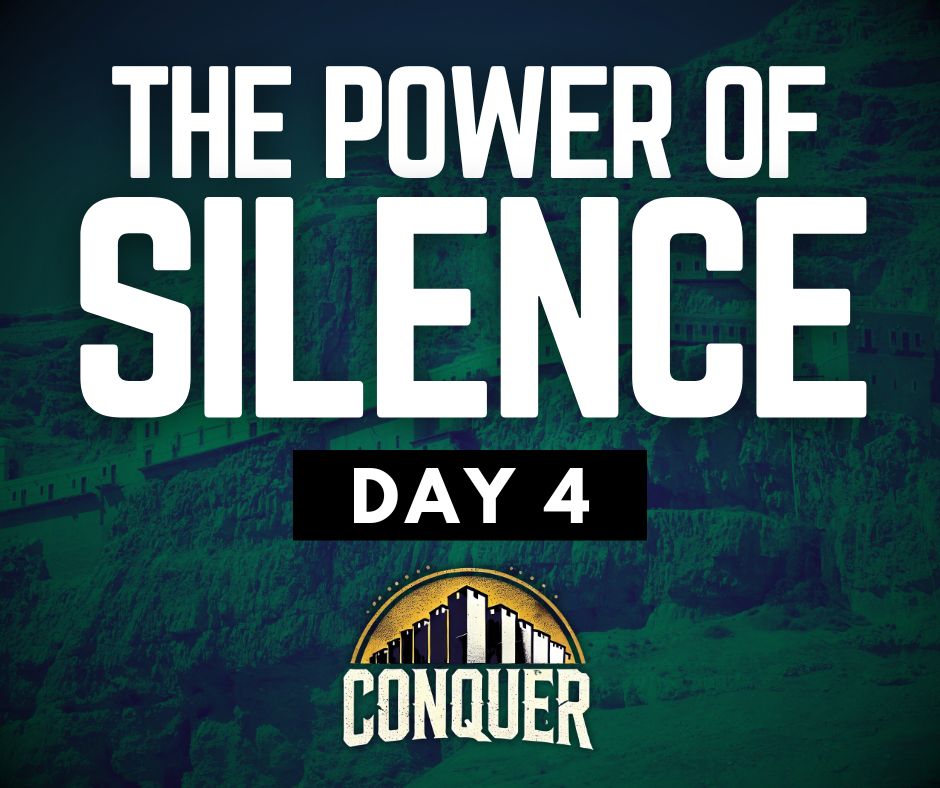“Even fools are thought wise if they keep silent, and discerning if they hold their tongues.”
Proverbs 17:28 (NIV)
In our fast-paced, always-connected world, the pressure to react immediately is intense. Social media, instant messaging, and 24/7 news cycles all demand our instant responses. We’re conditioned to believe that the quickest reaction is the best, that silence equates to weakness or indecision. But the story of Jericho in Joshua 6 teaches us a powerful lesson about the strength found in non-reactivity.
When the Israelites approached Jericho, they faced an imposing challenge. The city’s walls were formidable, its defenses strong. In ancient warfare, the natural reaction would be to respond with immediate aggression – shouting war cries, brandishing weapons, attempting to intimidate the enemy. But God’s command was radically different: “Do not give a war cry, do not raise your voices, do not say a word until the day I tell you to shout. Then shout!” (Joshua 6:10).
This command for silence and non-reactivity must have seemed counterintuitive, perhaps even foolish, to battle-ready soldiers. Yet it was precisely this non-reactive approach that ultimately led to their victory.
“The right word may be effective, but no word was ever as effective as a rightly timed pause.” – Mark Twain (American writer, humorist, and lecturer)
This quote, though not from a Christian source, captures a profound truth that aligns with biblical wisdom. Often, our pauses, our moments of non-reactivity, can be more powerful than our words or actions. The Israelites’ silent march around Jericho was a “rightly timed pause” on a grand scale, demonstrating trust in God’s plan and ultimately leading to a miraculous victory.
Non-reactivity is not passivity; it’s a choice to respond thoughtfully rather than react impulsively. It’s about creating space between stimulus and response, allowing wisdom to guide our actions rather than being driven by immediate emotions or pressures.
In our daily lives, practicing non-reactivity can take many forms: pausing before responding to a heated email or message, taking a moment to pray before making a decision, choosing to listen fully before offering advice or an opinion, resisting the urge to defend ourselves immediately when criticized, and waiting for all the facts before jumping to conclusions or spreading information.
These practices of non-reactivity can lead to several benefits: better decision-making as we allow time for wisdom and discernment, improved relationships as we respond with care rather than impulse, reduced stress and anxiety as we break the cycle of constant reactivity, increased spiritual growth as we learn to trust God’s timing, and greater influence as others notice our thoughtful, measured responses.
The Israelites’ non-reactive approach at Jericho wasn’t forever. There came a time when God commanded them to shout. Similarly, there are times when quick action or an immediate response is necessary. The key is discerning when to be still and when to act, always seeking God’s guidance.
Godseekers, in a world that demands instant reactions, remember the strength of non-reactivity. Like the Israelites circling Jericho in silence, your thoughtful pause can be a powerful testament to your trust in God and can lead to victories you never imagined.
Prayer
Heavenly Father, in a world that often demands immediate responses, grant us the wisdom to know when to be still and when to act. Help us to cultivate the strength of non-reactivity, trusting in Your perfect timing. May our pauses and our silences be as powerful as our words and actions, always guided by Your Spirit. Give us discernment to respond thoughtfully rather than react impulsively. In Jesus’ name, Amen.
Personal Reflection
- Can you recall a situation where a non-reactive approach led to a positive outcome?
- In what areas of your life do you feel the most pressure to react immediately? How might practicing non-reactivity change these situations?
Step of Faith
Today, when you feel pressured to react immediately to a situation, consciously choose to pause. Take three deep breaths, say a quick prayer for guidance, and give yourself permission to respond thoughtfully rather than react impulsively. Notice how this changes the dynamic of your interactions and your own internal state.








